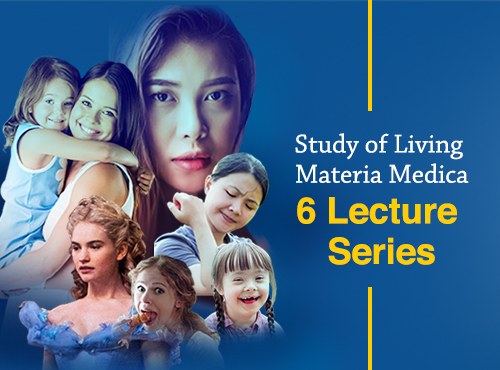Chronic case taking
- Online webinar, 6 hours of study.
- No time limit for completing your course.
- Evaluation test.
- Certificate of attendance
Case taking is an art of interviewing the patient via conversation, observation and collecting data. It is always not possible to get history from patients with complicated cases (subconscious, comatose, delirious state). Then the data have to be collected from the people accompanying the patient.
Homeopathic stalwarts: Hahnemann, Kent, Hering, are the greatest composers who have formulated the art of questioning to extract the totality of symptoms and the portrait of the disease.
Organon is the ultimate guidebook for homeopaths where Samuel Hahnemann have given precise instructions on case-taking. Aphorisms 82-100 he has written about the essentials of case-taking in acute and chronic diseases.
This 3 part session on Chronic case taking will help you on 'how to elicit information from the patient' by utilising the principles written in Organon of Medicine 200 years before which holds truth even today.
Australian Register of Homeopaths (AROH) accredited for 6 CPD hours for 6 CEU points
Topics covered:
- Importance of case taking
- Philosophical background of case-taking
- Interview plan
- Skills required by a physician
- Case studies along with analysis, evaluation and repertorisation
- Final selection of remedy and posology
Sessions:
Session 1: Chronic case taking - Part 1 by Dr. Manoj Patel
Dr. Manoj Patel will guide you through the basis of the questioning in different cases.
Session 2: Chronic case taking - Part 2 by Dr. Anoop Nigwekar
This session is a complete guidebook on chronic case-taking with Hahnemannian principles and application in clinical practice.
Session 3: Chronic case taking - Part 3 by Dr. Joseph Kellerstein
Dr. Joseph Kellerstein with his over 30 years of clinical experience in interviewing the patients will teaches you the art of case taking given in Organon and his unique approach to case taking.
Learning Objectives
- Understand the purpose of case taking
- Case -taking in different age groups
- Understand homeopathic concept of Chronic disease
- To obtain knowledge of the disease
- The importance of clinical diagnosis
- Concept of symptoms analysis and evaluation for repertorisation
About Speaker
| 99 |
|
| 99 |
|
| 99 |
|


 AROH Approved
AROH Approved




-05415453.jpg)
